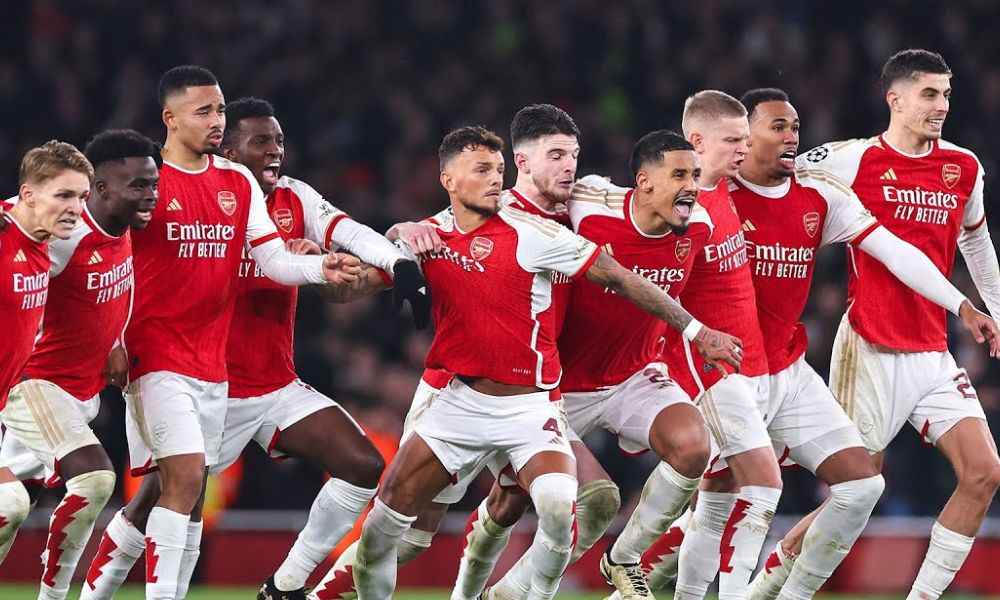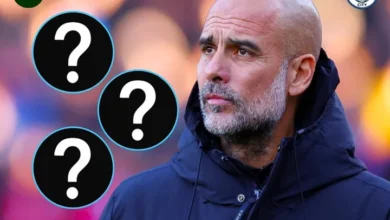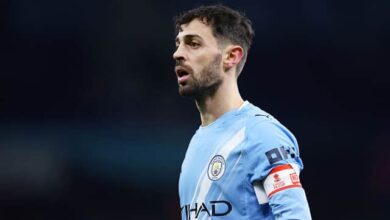Teenager, 17, arrested over online abuse of Havertz

A 17-year-old teenager from St Albans has been arrested by Hertfordshire Police on suspicion of “malicious communications” following a wave of online abuse aimed at Arsenal footballer Kai Havertz and his wife, Sophia. The incident highlights the ongoing problem of social media harassment faced by footballers and their families. The teenager, who cannot be named due to his age, was granted bail as investigations into the matter continue.
The abuse came after Arsenal’s FA Cup defeat to Manchester United earlier this month, a match that saw Havertz miss a chance to secure victory in normal time, followed by a penalty miss in the shootout. The game ended in a 1-1 draw, with United eventually winning 5-3 on penalties. In the aftermath of the match, Sophia Havertz took to her Instagram story to share two disturbing direct messages she had received. One of these messages contained threats against the couple’s unborn child. These messages, which have been widely condemned, reflect the darker side of social media, where players and their families are often subject to vile and unprovoked abuse.
Kai Havertz, 25, had joined Arsenal in 2023 from Chelsea, and his performance in the match against Manchester United had been a topic of criticism among fans. Despite having an overall successful career, Havertz’s form has been scrutinized at times, with many pointing to his struggles in high-pressure situations. This match was no exception, and some fans’ frustration turned into malicious attacks, aimed not only at the player but also at his wife and unborn child.
The couple had been together since 2018 and married last year, with Sophia announcing in November that they were expecting their first child. The online abuse they received was particularly distressing due to the content of the messages, which crossed the line into personal threats. In her Instagram story, Sophia condemned the actions of the perpetrator, calling them out for their “shameful” behavior. Her public response, which showed the personal toll that such abuse takes, was widely supported by fans and fellow professionals alike.
The impact of online abuse on players and their families is a topic that has garnered increasing attention in recent years. This incident is just the latest in a string of cases where footballers have been subjected to harmful and sometimes threatening messages after poor performances. While players are accustomed to facing criticism, the abuse often spills over into their personal lives, affecting not just the player, but their loved ones as well.
Arsenal manager Mikel Arteta also responded to the incident, expressing his deep concern over the abuse. He called for a collective effort to eradicate online harassment from the game, emphasizing the “terrible consequences” that such behavior can have on individuals and their families. Arteta has been a vocal advocate for players’ mental health and wellbeing, and this latest episode of online harassment has only strengthened his resolve to address these issues within the football community.
While many football fans use social media to express their opinions and engage with players, there is an alarming increase in the number of individuals who cross the line into abusive and harmful behavior. The anonymity of the internet has given some people the false belief that they can behave in a way that they would never do in person. Unfortunately, this has led to an environment where players are often bombarded with vitriol and insults, which can have a devastating impact on their mental health.l
The arrest of the teenager involved in this case sends a clear message that such behavior will not be tolerated. It also highlights the growing efforts by authorities to address online abuse and hold perpetrators accountable for their actions. However, many believe that more needs to be done to tackle the root causes of this type of abuse and prevent it from happening in the first place.
Football clubs, governing bodies, and social media platforms all have a role to play in combating online harassment. Football clubs, such as Arsenal, have increasingly supported their players by providing mental health resources and offering support during difficult times. Social media companies, on the other hand, have been criticized for not doing enough to prevent abuse on their platforms, with many calling for stronger regulations and harsher penalties for those who engage in online bullying.l
The issue of online abuse in football is not just a matter of player safety; it is also a question of the kind of culture that is allowed to flourish within the sport. Fans who engage in abusive behavior, whether online or in person, are not only harming the individuals they target but also contributing to a toxic atmosphere within the football community. As the sport continues to grow in popularity, it is essential that the culture around it evolves to prioritize respect, inclusivity, and mental wellbeing.
In recent years, there has been a growing movement within football to combat abuse and promote positive behavior both on and off the pitch. Players, managers, and fans alike have united to raise awareness of the damaging effects of online abuse and to call for change. This movement has gained momentum, with more and more individuals speaking out against harassment and showing support for those affected by it.
Arsenal, under the leadership of Arteta, has taken a strong stance on issues of player welfare and mental health. The club has implemented various initiatives to support its players, both professionally and personally. In addition to providing resources for mental health, Arsenal has also been vocal in calling for greater protection for players from online abuse. Arteta’s comments following the incident with Havertz and his wife underscore the importance of addressing these issues head-on and ensuring that players are treated with respect.
The role of social media in football has been a subject of debate for some time. While it provides a platform for fans to connect with their favorite players and express their opinions, it also opens the door for abuse and harassment. Social media platforms such as Twitter, Instagram, and Facebook have faced criticism for not doing enough to curb abusive behavior, with many arguing that the anonymity afforded by these platforms encourages users to engage in harmful conduct without fear of repercussions.
To combat online abuse, there have been calls for stricter regulations and more robust monitoring of social media content. Some have proposed that social media companies should be held more accountable for the content shared on their platforms and that they should implement stronger measures to prevent abuse. Others have suggested that users who engage in abusive behavior should face permanent bans or legal consequences.
In addition to external measures, football clubs can also play a key role in addressing online abuse. Clubs like Arsenal have been proactive in supporting players who face online harassment, offering them the necessary resources and backing. This support extends to the families of players, who are often targets of abuse due to their connection to the players themselves.
Ultimately, the issue of online abuse in football is a reflection of broader societal issues related to bullying, anonymity, and the lack of accountability in online spaces. Tackling this problem will require a collective effort from football authorities, social media companies, clubs, players, and fans. By working together, it is possible to create a safer and more respectful environment both on and off the pitch.
Kai Havertz and his wife, Sophia, have been subjected to a distressing experience, but they have shown resilience in the face of adversity. The public response to the abuse has been overwhelmingly supportive, with fans, players, and managers alike expressing their solidarity. While this incident is a stark reminder of the dark side of social media, it also highlights the importance of standing up against online abuse and ensuring that those who engage in it are held accountable. As football continues to evolve, it is essential that the sport’s values reflect the respect and dignity that every individual deserves.















